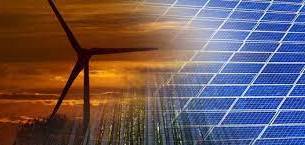
This year's Energizing Finance research series - developed by Sustainable Energy for All (SEforALL) in partnership with Climate Policy Initiative (CPI) and Dalberg Advisors - shows that the world is falling dangerously short of the investments required to achieve access to energy for all by 2030 for the seventh consecutive year.
In fact, tracking of electricity finance in the 20 countries that account for 80% of the world's population without electricity - the high-impact countries - declined by 27% in 2019, the year before the onset of the pandemic. Covid-19. The economic strain caused by Covid-19 is expected to lead to even greater reductions in investments in energy access in 2020 and 2021.
Energizing Finance: Understanding the Landscape 2021 , one of two reports published as part of the series, reveals that funding committed for residential electricity access fell to $ 12.9 billion in 2019 (from $ 16.9 billion). 1 billion USD in 2018) in the 20 countries. This equates to less than a third of the estimated $ 41 billion in annual investment needed globally to achieve universal access to electricity by 2030.
Meanwhile, there is an abysmal amount of funding for clean kitchen processes. Although polluting cooking fuels cause millions of premature deaths each year and are the second largest contributor to climate change after carbon dioxide, only $ 133.5 million in funding for clean cooking solutions has been tracked in 2019. This is a far cry from the estimated annual investment of $ 4.5 billion required to achieve universal access to clean cooking (taking into account only the costs of clean stoves).
These results were released just ahead of COP26 in Glasgow, where world leaders will focus on how to make meaningful progress in tackling climate change. As part of this, they will need to consider how to reduce global emissions from the energy sector while increasing access to energy in developing countries to support their economic development.
“We are at a critical juncture in the energy-climate conversation,” said Damilola Ogunbiyi, CEO and Special Representative of the United Nations Secretary-General for Sustainable Energy for All and Co-Chair of UN-Energy. “What is clear is that the road to carbon neutrality can only be done with a fair and equitable energy transition that gives access to clean and affordable energy to the 759 million people who do not have access to electricity and the 2.6 billion people who do not have access to clean cooking solutions. It requires resources to mitigate climate change and create new opportunities to spur economic development and enable people around the world to prosper. Energizing Finance provides an evidence base on current energy finance commitments and financial countries need to meet SDG 7 energy targets. ”
In 2018, 50% of total electricity funding went to grid-connected fossil fuels in high-impact countries, up from 25% in 2019. While this is a positive trend for the climate, ongoing investments in off-grid technology and mini-grids also declined and accounted for only 0.9% of electricity-related funding.
Barbara Buchner, Global Managing Director of CPI, who partnered with SEforALL on Energizing Finance: Understanding the Landscape 2021, said: “Achieving the Paris Agreement and universal access to energy requires investment. much more important in grid-connected renewables and off-grid and mini-grid solutions than what was tracked in Energizing Finance. These solutions are essential in helping high-impact countries develop their economies without relying on fossil fuels. "
To better illuminate the challenges facing high-impact countries, the second publication in the series, Energizing Finance: Taking the Pulse 2021 , offers a detailed look at the estimated volume and type of financing that businesses and clients need to achieve universal access to energy for electricity and clean cooking by 2030 in Mozambique, Ghana and Vietnam. It is important to realize that it illustrates the challenges people face with energy affordability in these countries and the need for financial support for consumers, such as subsidies.
The report finds that access to clean fuels and technologies - that is, modern energy cooking solutions - in Ghana, Mozambique and Vietnam will cost a total of $ 37-48 billion by the time. 2030; 70% of these will be for fuels (eg LPG, ethanol and electricity). A more feasible scenario would be for all three countries to provide universal access to improved stoves at a total cost of $ 1.05 billion by 2030.
“Ghana, Mozambique and Vietnam each have unique challenges to overcome in achieving universal access to electricity and clean kitchens ,” said Aly-Khan Jamal, partner at Dalberg Advisors, who served associated with SEforALL on Energizing Finance: Taking the Pulse 2021. “This research delves into these national contexts to identify solutions that can make Sustainable Development Goal 7 a reality. "
Providing results-based funding to energy project developers and exploring policies that facilitate support for demand-side subsidies and reduce taxes on solar home systems are among several policy recommendations presented for Ghana, Mozambique and Vietnam.
Energizing Finance also advocates for increased innovation in financial instruments in order to achieve the scale of financing necessary for universal access to clean cooking; for the integration of access to electricity, access to cooking and strategies to combat climate change; and that national governments, bilateral donors, philanthropies and DFIs have all increased their efforts to mobilize commercial capital in sub-Saharan African countries.
Posted on 2021-10-26 20:22








Comments